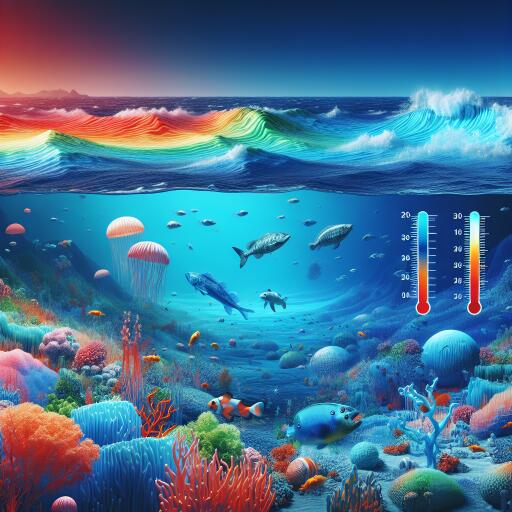
Ocean heat is off the charts
The soaring temperatures of the world’s oceans since mid-March 2023 have marked a significant turn in the climate landscape, with measures reaching their highest in four decades of satellite observations. This warming phenomenon is manifesting in various disruptive ways globally, painting a critical picture of the state of our planet’s health and its future.
In regions such as the Sea of Japan, temperatures have surged more than 7 degrees Fahrenheit above the norm, forecasting profound impacts on ecosystems and human communities alike. Similarly, the Indian Ocean’s warmth is unsettling the monsoon season, essential for the water supply and agriculture in vast areas of South Asia. European countries are not spared, with places like Spain, France, and the Scandinavian Peninsula experiencing significantly reduced rainfall, likely due to a marine heatwave spanning from Africa to Iceland.
Why Is This Happening?
Several factors contribute to this unusual increase in ocean temperatures, with El Niño—a climate pattern characterized by the warming of ocean surface waters in the Pacific—acting as a key player. However, this event does not act in isolation. The backdrop of ongoing global warming, fueled by human-induced greenhouse gas emissions, sets the stage for such extreme anomalies in temperature.
The past years have seen a relatively cooling influence from La Niña conditions, acting as a counterbalance to the warming trends. Yet, with the phase-out of La Niña, the unmasked heat has become increasingly evident. Furthermore, the decline in Arctic sea ice cover amplifies this effect, as open waters absorb more solar radiation than ice, further warming the ocean.
Global Impacts
The repercussions of these shifts are far-reaching. In Scandinavia, a drought reminiscent of 2018 looms large, threatening agricultural productivity. The Atlantic’s warmth is also altering weather patterns, potentially influencing air quality and increasing the intensity of solar radiation absorbed by the ocean. In the Indian Ocean, the weakened monsoon is jeopardizing agriculture that relies on seasonal rains, while cyclones, gaining strength from warmer waters, pose additional risks to communities and ecosystems.
In terms of marine biodiversity, the stakes are high. Coral reefs, crucial for the survival of numerous marine species and the livelihood of a billion people, face unprecedented threats from bleaching. The spread of invasive species in waters like the Japan Sea and the Mediterranean further compounds the challenges to marine life, altering ecosystems in irreversible ways.
The Path Forward
The events of spring 2023 underline a critical juncture in our climate journey, highlighting the intersection of El Niño with escalating ocean temperatures. The pathway to mitigating these risks involves a concerted global effort to curb greenhouse gas emissions and transition towards a carbon-neutral future. Adaptation strategies to cope with a warming climate and the extremities it brings are also paramount in safeguarding our planet and its inhabitants.
As the world grapples with these challenges, the message is clear: the actions we take today shape the climate of tomorrow. The unprecedented ocean warming serves as a stark reminder of the urgent need for climate action, compelling us to rethink our relationship with the planet for the sake of future generations.





Leave a Reply